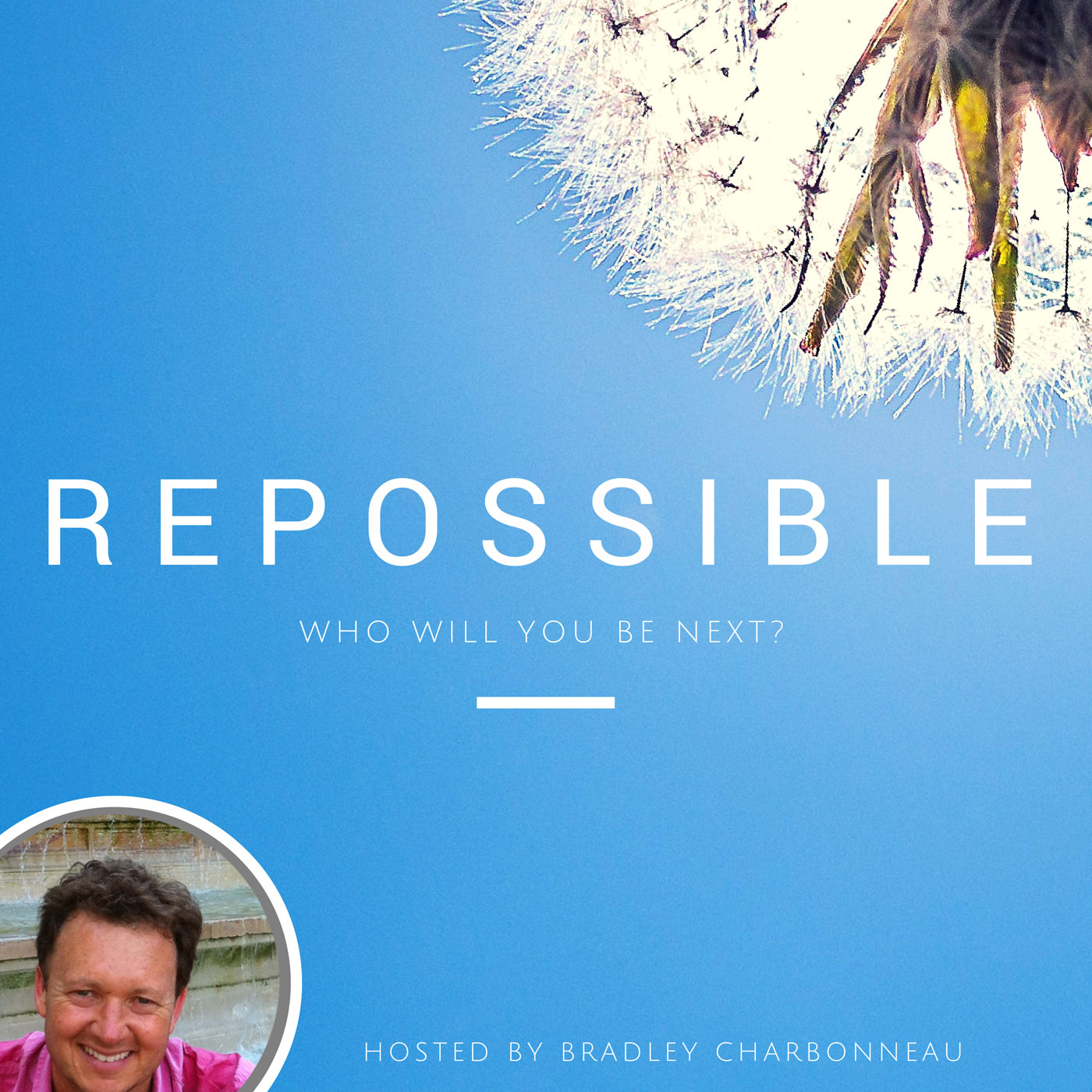Episode Transcript
[00:00:00] Speaker A: Welcome to the deep dive. Today we're looking at a stack of source material, articles, research, personal stories, all about making big international moves. And we're cutting right to the core strategy, really trying to answer that question that separates the dreamers from, well, the doers. Yeah, the now what moment.
[00:00:16] Speaker B: Right. And it's interesting how the sources frame that phrase, now what? It's not confusion. It's got this, this exclamation point energy, it's signals a decision's been made. An action moment, not just thinking about it. So our mission today is to unpack the roadmap, tactical, philosophical, personal, and hera of what it takes to make a huge life change, specifically moving from the US to the Netherlands.
[00:00:42] Speaker A: Exactly. This isn't your average travel guide stuff. We're aiming for the shortcut, really, to understand how a family goes from saying, yeah, maybe one day we'll live abroad to actually being there.
And the story we're following. Yeah, they describe themselves as being 14 months old in their new country.
[00:00:57] Speaker B: Yeah, I like that framing 14 months old. It immediately tells you they're sharing this from the scar, not the wound. Right. The hard parts, the big hurdles, the stress, that's mostly passed. Now we can look back at the strategy more clearly.
[00:01:09] Speaker A: Okay, so let's get into the logic. Where did this specific move start? It wasn't like a sudden panic decision made over breakfast one day. The seed was apparently planted years before in Barcelona, Spain actually, during some kind of international company event. And the thought wasn't just, oh, this is nice, it was decisive. Barcelona is, wow, we gotta move to Europe.
[00:01:31] Speaker B: And that right there is often the key difference, isn't it? The sources really stress this, talking about a big goal, truly believing it, and then crucially taking some kind of action almost immediately. Because think about, most people, maybe 99% visit somewhere amazing and say, I'd love to live here. And then nothing happens. It stays a nice idea for this couple. That initial belief, that declaration, that was the start of the real now what process.
[00:01:55] Speaker A: It shifts from a wish to like a mandate. And executing that mandate needed a really strategic plan. They weren't just winging it sounds like they planned this almost like a multi stage operation centered around the wife's job.
[00:02:08] Speaker B: Oh, absolutely. The sources describe it as totally premeditated. The foundation was leveraging her role at this, a parking transactions company. Her European company had just been bought by a US firm which created this sort of perfect bridge.
[00:02:21] Speaker A: You could say, okay, let's break down that core strategy. Yeah, she didn't just, what, ask for A transfer? No, she positioned herself as indispensable. The expert on the US market they needed in Europe to integrate things. And that specific move was designed purely to get the family in the door using a skill migrant visa. That was the entry point.
[00:02:40] Speaker B: Exactly. Successful first move. Yes, but, and this is critical, that type of visa carries a huge vulnerability. Something they saw right away.
[00:02:48] Speaker A: Okay, what's the risk there? What are the stakes with that specific skill migrant visa?
[00:02:52] Speaker B: Well, the stakes are massive. Essentially, the family's entire legal right to be in the Netherlands hangs on her specific job at that specific company. If she quits or gets laid off or even just wants to change jobs, poof, their residency could evaporate. That's a lot of pressure. It basically removes any real freedom or independence.
[00:03:12] Speaker A: Wow. Okay, so that kind of planning, thinking about that vulnerability from day one, suggests there's something much deeper driving this than just, you know, wanting a change of scenery. You're already planning the escape hatch as you walk in.
[00:03:25] Speaker B: You have to. Smart movers always think ahead. The real long term play was securing independent residency. And that led them to look into the daft visa, the Dutch American Friendship Treaty.
[00:03:37] Speaker A: Daft visa, Dutch American Friendship Treaty. That sounds interesting. How old is that?
[00:03:41] Speaker B: It dates way back to 1956. And it's essentially this really valuable, almost like a loophole for US citizens wanting to set up as self employed in the Netherlands.
[00:03:50] Speaker A: Okay, sounds great on paper, but treaties like that usually have hoops to jump through.
[00:03:54] Speaker B: Right, Right.
[00:03:55] Speaker A: It couldn't have been simple. What do they actually have to do to get that daft visa?
[00:03:58] Speaker B: No, definitely not simple. This is where the action part comes in. To use the daft visa, the applicant, in this case it was the husband. SA GR Grant had to set up a real business. He had to show a minimum investment, something like €4,500 back then, which isn't enormous. But the key was presenting a solid business plan. Sharing you intend to actually contribute to the Dutch economy. It meant formalizing his self employment and proving it was sustainable.
[00:04:26] Speaker A: Hold on. So they're applying for this whole new visa route while they're still on the first more fragile corporate one. Doesn't that add a ton of complexity? Risk even? Why rock the boat?
[00:04:35] Speaker B: It's all about risk mitigation. Think of it as building a safety net before you fall. The daft visa wasn't about getting in quickly. The skill migrant visa already did that. The daft was the backup plan, the way to ensure they could stay independently even if her job situation changed. They were building two parallel Paths to stay.
[00:04:51] Speaker A: That's quite something. And the sources mentioned dealing with complexities. Even for their son. He was 18, legally an adult. How did they manage that?
[00:04:59] Speaker B: Right, that was another layer.
Dependency status for an adult child is tricky. Immigration systems usually assume dependents are minors. Once someone turns 18, they're often seen as needing their own visa. So the parents had to demonstrate he was still financially dependent on them. And crucially, that he was coming primarily for education, enrolling in university there. It kept him under their family application umbrella, another small but significant piece of the puzzle.
[00:05:25] Speaker A: So, stepping back, this was a really sophisticated two pronged strategy, almost like chess. Use the wife's corporate job for the initial entry, the skill migrant visa gets the foot in the door. And simultaneously used the husband and this historic Daft Treaty to build the long term independent foundation.
[00:05:42] Speaker B: It's exactly it. They ensured they had redundancy, two ways to stay, giving them maximum flexibility and security down the road.
[00:05:48] Speaker A: Okay, that level of strategic effort, that intensity, it really points to a motivation deeper than just, hey, Europe looks nice. Why go through all that complexity? What's the core idea behind this nomad mindset the sources talk about?
[00:06:01] Speaker B: Yeah, the why is fundamental. The sources suggest a belief that being sort of stuck, gridlocked in one place, it's almost unnatural. If you look at human history, we started as nomads, exploring, moving. It's supposedly baked into our DNA. The idea of staying put on one grid for 80 years feels restrictive to some.
[00:06:22] Speaker A: But the obvious question, especially for someone maybe listening in the US is why leave? Why leave what? Many consider, you know, the center of things.
[00:06:30] Speaker B: And the answer that comes to is captured in this thought. America is great, but the world is greater. But the person whose journey this is, they basically said, look, I might have another 40 plus years on this planet. Why spend all of it in just one spot? The drive is to actually experience the world, not just see pictures or watch shows about it.
[00:06:47] Speaker A: And that personal drive, that exploration, it also creates this powerful legacy, doesn't it? You become that relative, you know, cool aunt who lives in Paris or the cousin who moved to Amsterdam. Your move becomes part of the family story. Like ancestors moving from Ireland or letters about surviving the Dust Bowl. It's history making for the family.
[00:07:07] Speaker B: Exactly, but with a modern twist. This is a key difference highlighted. Today's nomads leave breadcrumbs of technology.
Hmm. Think about it. Our ancestors left maybe a few letters, a name in a ledger, maybe something dry about crop prices. But this family's descendants, they'll have podcasts, books, Articles, they can actually hear the voice, the thinking, the reasons behind the move. It's the difference between a footnote in history and like a four hour recording of your great grandparent explaining their immigration choices. That's a totally different kind of legacy.
[00:07:40] Speaker A: Okay, let's shift gears slightly to influence.
Because this whole process, the planning, the philosophy, it doesn't just affect the people doing it, it ripples outwards, often indirectly.
[00:07:49] Speaker B: Right. And the sources make a really strong point here. Doing something is way more influential than just talking about it or telling someone else what to do. Real change, real inspiration often happens subtly through, well, you could call it osmosis.
[00:08:02] Speaker A: Yeah. The examples given are fascinating. Like the father listening to Dean Martin casually in the car years ago. Just background noise. And now his son plays Dean Martin. Or the daughter asking for help mounting a TV because she just saw her dad install May maybe five TVs over the years. No formal lesson needed.
[00:08:18] Speaker B: It's that background hum, you know, the speaker actually mentioned his own father listening to motivational tapes. His dad never became massively successful himself from them. But it created this kind of background expectation, this environment that maybe helped the son find success later. That secondary exposure normalizes things. It sinks in more than we think.
[00:08:39] Speaker A: I totally get that. I mean, in my own life, thinking about big changes. But my wife was often the one who took the first big leap. She initiated. She had the bravery to say, we can actually do this.
And I watched her. She was the action taker first. And I sort of followed and helped implement. You don't always have to be the one driving. Initially, supporting the first mover is huge.
[00:08:57] Speaker B: That's a perfect example. And the advice that flows from this is, well, if you're not the one ready for the giant leap right now, maybe your role is different. Maybe you're the inspiration without realizing it. The kid listening in the car, the daughter watching the TV go up. Or maybe your role is just don't block someone else who is ready. Don't be the anchor.
[00:09:16] Speaker A: So translating this for you, the listener, what does it all mean? If you're feeling that pull towards your own next chapter, whether you're 8 or 68, the core advice seems very practical.
Find your magnetic circle. Find your tribe, your people, the ones who give you that synergistic energy.
[00:09:35] Speaker B: Yeah, and it's not just generic find friends advice. The sources emphasize finding people on the same wavelength of action. They don't have to have the same background at all, but they need that positive magic, magnetism. People who challenge you, push you, but also believe in you. This couple didn't move because they had a huge network waiting in the Netherlands. They moved because they were on the same wavelength.
[00:09:53] Speaker A: And that synergy, that shared frequency of ambition, it can come from unexpected places.
[00:09:58] Speaker B: Yeah.
[00:09:58] Speaker A: The key is having people in your close circle you admire and who ideally admire you back that mutual respect.
[00:10:05] Speaker B: And the payoff is potentially huge. The faster you find those people, the ones who make the big moves seem normal, who understand the strategic thinking, the bigger you could explode in the long run, as one source put it, that shared vibration, that connection, that's the real fuel for big change.
[00:10:21] Speaker A: Okay, this has been a real deep dive. Let's quickly recap the big takeaways for you. Listening, mastering that. Now, what point takes serious strategy like that dafti and skill. Migrant visa play. It takes a guiding philosophy. Believing the world is greater than just your corner of it, and crucially, accepting that your biggest impact might be indirect.
What you do speaks louder than what you say, right?
[00:10:44] Speaker B: And maybe a final thought for anyone feeling hesitant.
Maybe your parents don't get it. Maybe your best friend thinks you're crazy for wanting to go against the grain and move or change things up. Just remember the scale of things. There are 8 billion people out there. Your immediate circle of, say, three people, might not understand, but the odds are overwhelmingly in your favor that someone out there, a mentor you haven't met, an online group, a future friend, totally gets it and can help you figure out that next step.
[00:11:11] Speaker A: Find that connection, embrace that action mindset, and let us know, who will you be next?


